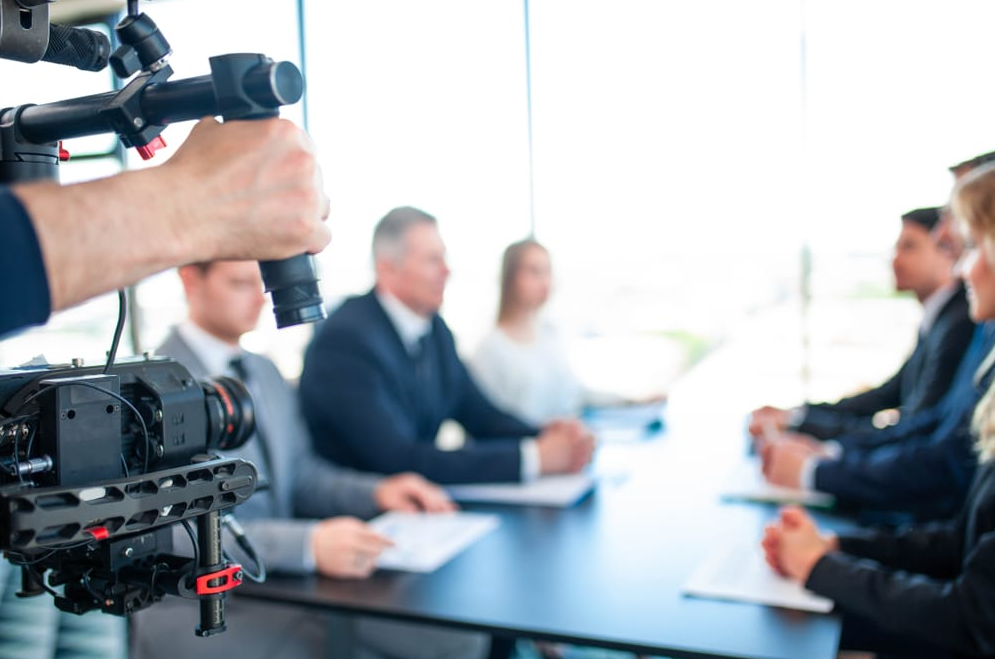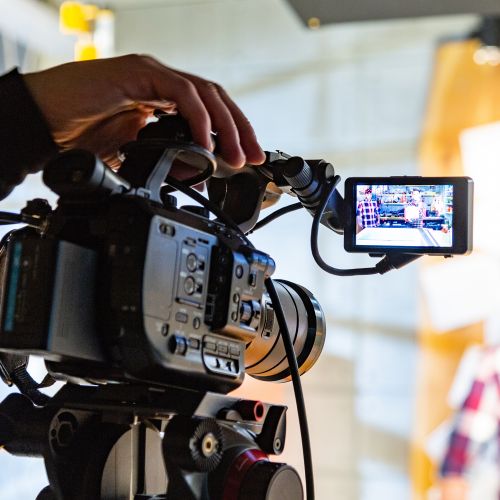Leading Advantages of Using Legal Videography for Depositions and Trials
The assimilation of lawful videography into depositions and trials offers a variety of compelling advantages that can dramatically impact the effectiveness of lawful proceedings. By catching witness statements in a vibrant format, legal videography not just boosts the presentation of proof yet also reinforces witness credibility through the preservation of both verbal and non-verbal hints. Moreover, the psychological vibration of video clip can develop a more profound connection with jurors, ultimately influencing their understandings. As we check out these advantages additionally, the effects for lawful strategy and courtroom dynamics become increasingly apparent.
Improved Evidence Presentation


In the realm of lawful process, the use of video clip recordings has changed the method proof exists in court. Lawful videography offers a vibrant and engaging tool for showcasing vital proof, making complex details much more accessible to courts, courts, and other stakeholders. Unlike typical written transcripts, video clip recordings record not just the talked words, yet likewise the subtleties of body language, tone, and attitude, which can substantially affect the interpretation of testaments and statements.
Additionally, video evidence permits a much more engaging narrative presentation. With aesthetic narration, attorneys can efficiently highlight crucial facets of an instance, guiding the audience's interest to critical moments. This enhanced presentation can help with a deeper understanding of the context and ramifications of the proof being gone over.
In addition, the ability to present proof in a multimedia format can improve the test process, decreasing the time needed to convey information compared to lengthy verbal explanations or reading from records. On the whole, legal videography plays a critical function in improving evidence presentation, ensuring that the information is both impactful and comprehensible, ultimately aiding in the quest of justice.

Better Witness Reputation
The usage of legal videography significantly enhances the reputation of witnesses during trial process. By offering an aesthetic representation of a witness's testament, lawful videography allows jurors and courts to perceive the witness's temperament, self-confidence, and authenticity. This multi-dimensional discussion can significantly affect how the details is received, commonly causing a more desirable impression of the witness.
In addition, the tape-recorded video clip catches non-verbal signs, such as body language and faces, which can be important in sharing truthfulness or emotional deepness. A witness that appears made up and honest is much more likely to be regarded as legitimate than one who is merely listened to via audio. Legal videography likewise removes the potential for misconception that can accompany written transcripts, as the visual layout provides context that sustains the talked word.
Additionally, the durability of video clip evidence strengthens the witness's account, making it much more challenging for opposing parties to test the testament's reliability. By integrating legal videography into depositions and trials, lawful specialists can significantly reinforce the viewed stability of their witnesses, inevitably boosting the overall effectiveness of their case.
Accurate Deposition Records
How can accurate deposition records impact the outcome of a case? Accurate deposition records play a critical duty in lawful process, working as essential evidence that mirrors the trustworthiness and dependability of witness statements (legal videography). These records offer a verbatim account of statements made during depositions, ensuring that all subtleties, inflections, and contexts are maintained. This accuracy is essential when developing the realities of a situation, as it enables attorneys to reference exact phrases or assertions made by witnesses, decreasing the risk of misconception.
In addition, lawful videography boosts the precision of deposition documents by catching the visual and auditory components of the testament. This consists of body movement, intonation, and face expressions, which can supply additional context to the talked words. Such click this site detailed records make it possible for lawyers to craft more engaging arguments, as they can conveniently corroborate claims with straight proof.
Additionally, exact deposition records can simplify the trial procedure, decreasing conflicts over what was said and permitting a much more effective discussion of evidence. Inevitably, the combination of created transcripts and video clip recordings fosters a more clear understanding of witness testimonies, substantially affecting the case's end result.
Emotional Effect On Jurors
Jurors frequently locate themselves affected by the emotional weight have a peek at this website of the statements they witness throughout a trial. The aesthetic and auditory aspects of lawful videography enhance this psychological vibration, allowing jurors to view the nuances of witness expressions, tone, and body movement. These factors play an essential function fit jurors' understandings of reputation and reliability.
When jurors see a witness stating a stressful experience, the emotional gravity captured on video clip often generates empathy and engagement. This can be particularly impactful in situations where the human component is central, such as accident or household legislation issues. The capacity to connect with a witness's emotions promotes a much deeper understanding of the situation, making jurors more probable to connect to the story being presented.
Moreover, video testimonies can communicate a sense of authenticity that might be lost in composed records or audio recordings. Jurors are not only taking in information; they are find more also experiencing the story, which can substantially influence their deliberations. This way, legal videography serves as an effective tool to stimulate feelings, inevitably assisting jurors toward a more informed and thoughtful judgment.
Cost-efficient Lawsuits Tool
Legal videography not just improves the psychological effect of witness testimonies but also works as an economical litigation tool. By giving an aesthetic record of depositions and testimonies, lawful videography can considerably decrease the costs related to standard trial preparation and discussion.
First, it lessens the need for substantial witness travel and accommodations. Rather of bringing multiple witnesses to court, their taped depositions can be played during the test. legal videography. This not only minimizes travel expenditures but also permits an extra structured presentation, as attorneys can concentrate on the most significant statements
Additionally, legal videography can restrict the amount of time invested in test. By properly providing witness accounts and evidence, lawyers can quicken procedures, which equates to lower lawyer charges and decreased court room costs. The quality and credibility of video recordings often lead to quicker jury decisions, possibly shortening the trial duration.
In an age where budget plans are significantly looked at, utilizing legal videography can deliver substantial cost savings while improving the general high quality of a situation discussion. Its double advantages of cost-effectiveness and enhanced interaction make it an invaluable tool in modern litigation.
Conclusion
In recap, legal videography substantially enhances the effectiveness of depositions and tests. Its capability to present proof thoroughly, improve witness reliability, and offer exact documents contributes to an extra clear legal process.